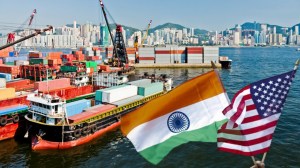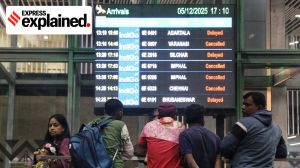Why panic?
India is needlessly defensive on Security Councils nuclear disarmament resolution....
If the UN Security Council Resolution on nuclear disarmament and non-proliferation was along predictable lines,the prickly Indian reaction distancing Delhi from it was unfortunate. Resolution 1887,unanimously approved on Wednesday,stands on three pillars a reaffirmation of the goal of nuclear abolition,strengthening the non-proliferation regime centred on the Nuclear Non-Proliferation Treaty,and minimising the risks associated with the increased use of nuclear energy around the world amidst mounting concerns about global warming. India has long championed global nuclear zero,underlined its record on non-proliferation as impeccable,and called for credible firewalls between the civilian and military use of nuclear energy. Yet India seems to have panicked in the wake of 1887.
That India has nuclear weapons and will not sign the NPT in the present form is widely understood. The NPTs definition of a nuclear weapon state as one which conducted a nuclear explosion before 1968 does set up legal tension between Indias nuclear reality and the treaty. The Indo-US civil nuclear initiative,approved by the international community in 2008,was entirely about finessing that problem to Indias advantage. That 1887 does not mention this nuclear exception to India in no way alters the current international law that allows Delhi to access global civilian nuclear markets without having to sign the NPT.
The negative Indian reaction distancing itself from the NPT will be justified by the foreign office multilateralists on the grounds that it was necessary to make Indias legal position on 1887 clear. Two alternative ways can be conceived. The first,steeped in realism,would make light of the UN resolution calling for the universalisation of the NPT. Similar unimplementable international calls over the years did not gain much traction. Cynics would also say the US Senate is yet to endorse President Barack Obamas starry-eyed plans for global nuclear reductions; and that the major nuclear powers deeply disagree on how to achieve nuclear abolition. The other is a positive framework that emphasises Indias role as a responsible nuclear weapon power. This was reflected in the affirmations of the previous UPA government as well as its predecessor,the NDA,that India is committed to all the obligations of a nuclear weapon state mandated by the NPT and that Delhis record of implementation has been better than that of other great powers. The prime minister and the external affairs minister,we hope,will improve on the initial Indian reaction to 1887 by offering full political support for the re-construction of the current shaky global nuclear order.
- 01
- 02
- 03
- 04
- 05































